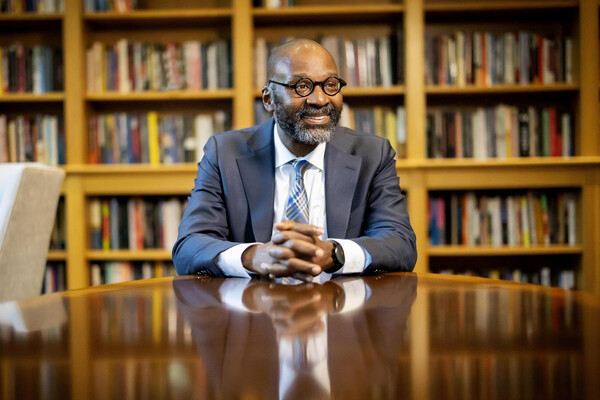
Griffin Pitt, right, works with two other student researchers to test the conductivity, total dissolved solids, salinity, and temperature of water below a sand dam in Kenya.
(Image: Courtesy of Griffin Pitt)
For a lifetime effort to bring her training as a historian to public service, Mary Frances Berry, professor of history in the School of Arts & Sciences at the University of Pennsylvania, has received the 2014 Roy Rosenzweig Distinguished Service Award.The award is given annually by the Organization of American Historians to an individual or individuals whose contributions have significantly enriched our understanding and appreciation of American history.
OAH President-elect Patricia Limerick presented the award to Berry at the OAH annual meeting last month in Atlanta. She praised Berry as “an admired participant activist with a staunch commitment to implementing the organization’s highest ideals, who expanded our understanding of the meaning of race in American history and as a public servant who has helped to protect the rights and liberties of American citizens from unjust applications of law and policy.”
Berry served as OAH president from 1990-1991. She joined the Penn faculty in 1987. The author of ten books and numerous articles that explore various aspects of legal history from the perspective of gender and race, Berry has been recognized with more than two dozen honorary degrees from American universities.
In 1980, President Jimmy Carter appointed Berry to the United States Commission on Civil Rights and 13 years later she was named chair by President Bill Clinton. During her 25-year tenure, the Commission emerged as a visible protector of minority rights, creating significant reports on issues ranging from environmental justice and affirmative action to conditions on Native American reservations. Berry earned a reputation as a courageous advocate on behalf of politically unpopular causes and as an independent thinker who vastly expanded the commission’s mandate.
Founded in 1907, the OAH is the largest learned society and professional organization dedicated to the teaching and study of the American past. Members include college and university professors, students, teachers, archivists, museum curators and other public historians employed in government and the private sector.

Griffin Pitt, right, works with two other student researchers to test the conductivity, total dissolved solids, salinity, and temperature of water below a sand dam in Kenya.
(Image: Courtesy of Griffin Pitt)

Image: Andriy Onufriyenko via Getty Images

nocred

Provost John L. Jackson Jr.
nocred